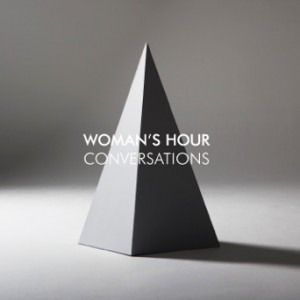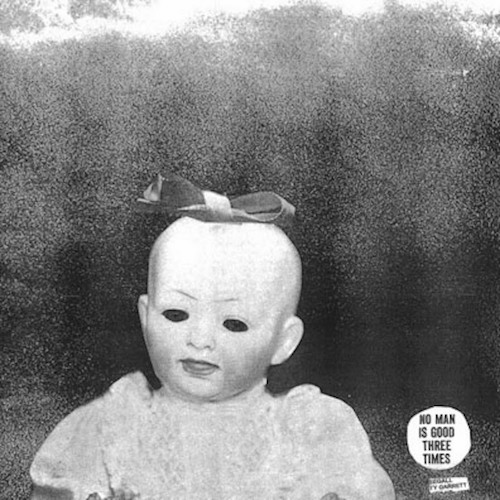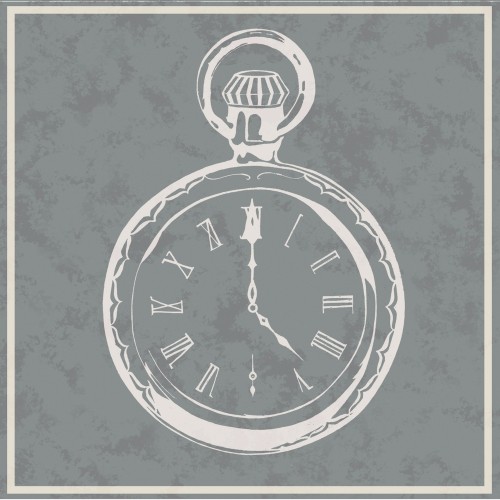 Release Date: July 15, 2014
Release Date: July 15, 2014





When singer Fiona Burgess began naming her London-based electro-pop quartet’s demos after various BBC Radio programs, she didn’t expect Woman’s Hour to become the official band name.
In fact, unexpectedness and relentless unorthodoxy define both Burgess’ writing and her group’s debut LP Conversations. With highly emotive lyrics, innovative songwriting, and monochrome performance art-inspired music videos, Woman’s Hour gives challenging art accessibility and mainstream potential.
Mirroring the band’s black-and-white aesthetic, Conversations flashes back and forth between bouncy, confident relationship analyses (“In Stillness We Remain”) and soft, downtrodden portraits of lonely depression (“Darkest Place”), the latter appearing more frequently. Burgess’ vocals hover lightly above Conversations, but the rhythm section behind Woman’s Hour keeps them from floating away completely, providing a solid sense of direction and purpose in unique song structures.
Texturally, the LP is drenched in synths, but keyboardist Josh Hunnisett cleverly assigns unique tonal personalities to each synth part, keeping the album fresh throughout.
Conversations is a powerful LP, largely due to Burgess’ accurate portrayals of the inner turmoil of breakups, and conflicted opener “Unbroken Sequence” makes a potent example. Spiraling keyboards and an echoey step-clap rhythm set the stage for emotionally confused lyrics, which promise “I won’t be a voice that tells you what to do and pushes you around,” but also state “I need you to learn how to walk away,” revealing the narrator’s cognitive dissonance. Afterward, Nicholas Graves’ punchy bass adds a much-needed flare to “Unbroken Sequence,” and to the entire weeping album.
Adding heart-wrenching lyrics to Graves’ prominent bass, “Darkest Place” really is Conversations‘ most depressing crevice. Despite the track’s upbeat nature, Burgess wallows in post-breakup isolation, whimpering “…for the first second of every day/I don’t understand why you’re not around/…/You hang around on the clothes I wear/and I can’t even tell you how much it means.” In a structural move rarely found in pop, “Darkest Place” includes a quiet, percussion-less “ooh” section that creates a spacey, choral ringing effect, and forgoes the expected final chorus, ending the song on its own gloomy accord.
“Darkest Place” inflicts emotional stress not only on the ears but also on the eyes. Inspired by performance artist Vito Acconci, the song’s music video features Burgess singing with eyes closed, as an undefined antagonist attempts to pry them open. It’s a wince-inducing affair at best, thanks to the tortured faces made by Burgess throughout. “Darkest Place” confronts listeners and viewers with the uncomfortable truth that communication and understanding are not prizes to be won, but struggles to be endured, upgrading the everyday breakup song from a painting of despair to a powerful, statement-making weapon.
While less daring artists may play it safe, promoting only the most accessible tunes as singles, Woman’s Hour purposefully avoids snubbing the unorthodox.
Its ambitious creation “Our Love Has No Rhythm” steals the lead single spotlight. A lone, heartfelt verse of communication and forgiveness between lovers opens and closes the song, bookending a large free-form section where Burgess repeats the song’s titular phrase with a restrained passion. Afterward, guitarist William Burgess meticulously arpeggiates quiet, inoffensive chords that underscore a comforting, newfound understanding between lovers.
Furthering the theme of understanding, standout “Her Ghost” brings more to light, unveiling a relationship plagued by the ghost of a lover’s ex. “I’ve got nothing to say to her ghost/Hoping she’ll fade away/…/Love is not lived this way,” Burgess croons, admitting to her lover and to herself that nothing can be done to assuage the tension. In yet another twist, Woman’s Hour paints this melancholy portrait on a bright canvas; with lofty synths, glittery guitars, and crafty percussion, the instrumental behind the song resembles the early ’90’s incarnation of Rush.
Unfortunately, much of Conversations finds Burgess telling her deeply personal tales with a lack of conviction. She also displays hit-or-miss pop sensibilities; while the hooks of “Unbroken Sequence” and “Her Ghost” succeed as ear-worms, other melodies (“Conversations,” “To The End,” “Devotion”) are lackluster.
Conversations is full of surprises, right up to closer “The Day That Needs Defending.” A lively but apt conclusion, the song displays all the character-defining aspects of Woman’s Hour. The band boldly brings unconventional art to the forefront with challenging lyrics, odd song structures, bitter reflections on love, a multitude of synths, and uncomfortable music videos. The day of Woman’s Hour is here, and it needs no defending.
Woman’s Hour – Conversations tracklist:
- “Unbroken Sequence”
- “Conversations”
- “To The End”
- “Darkest Place”
- “In Stillness We Remain”
- “Our Love Has No Rhythm”
- “Her Ghost”
- “Two Sides of You”
- “Devotion”
- “Reflections”
- “The Day That Needs Defending”


